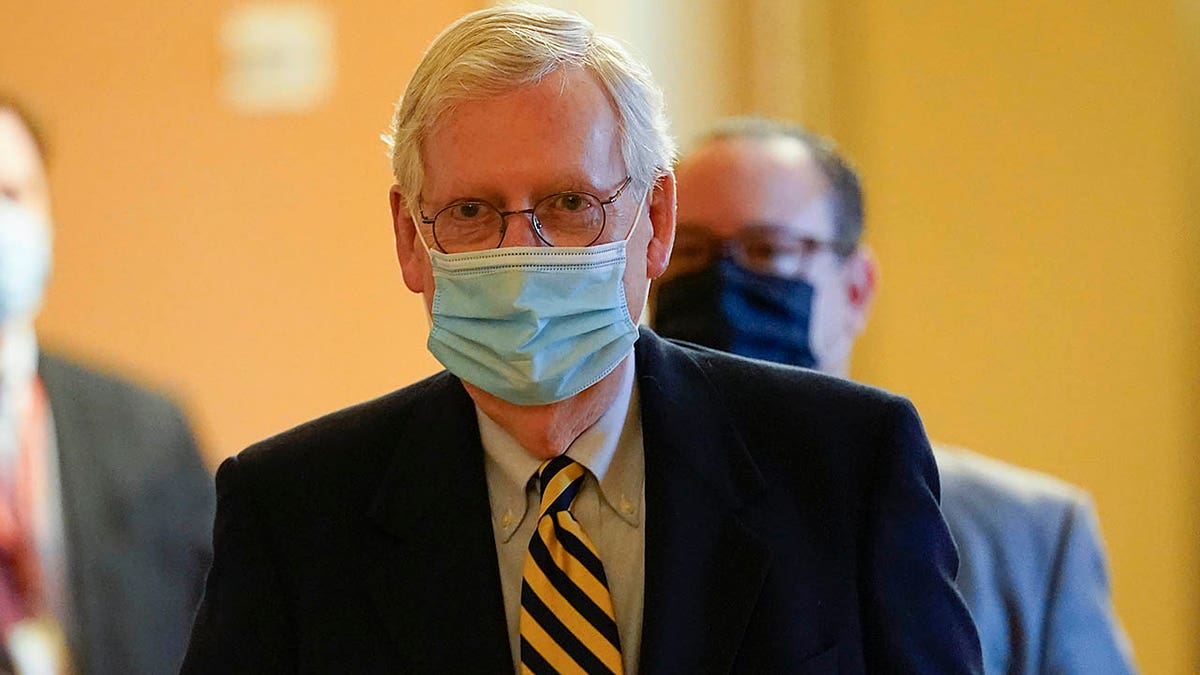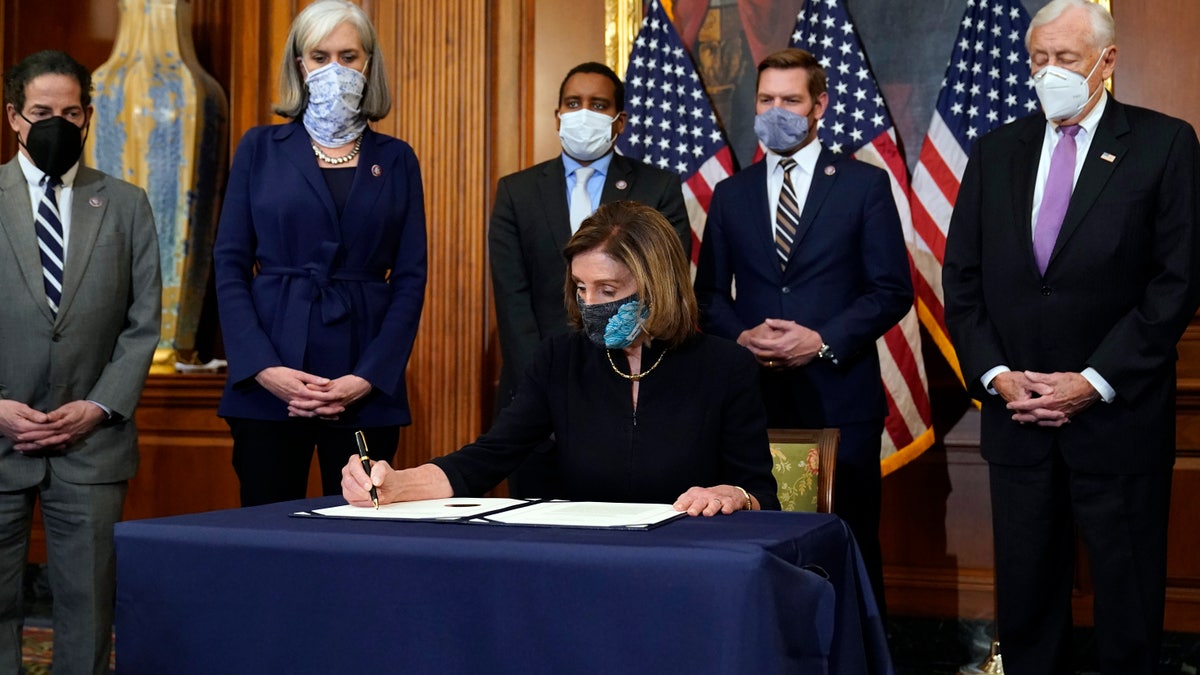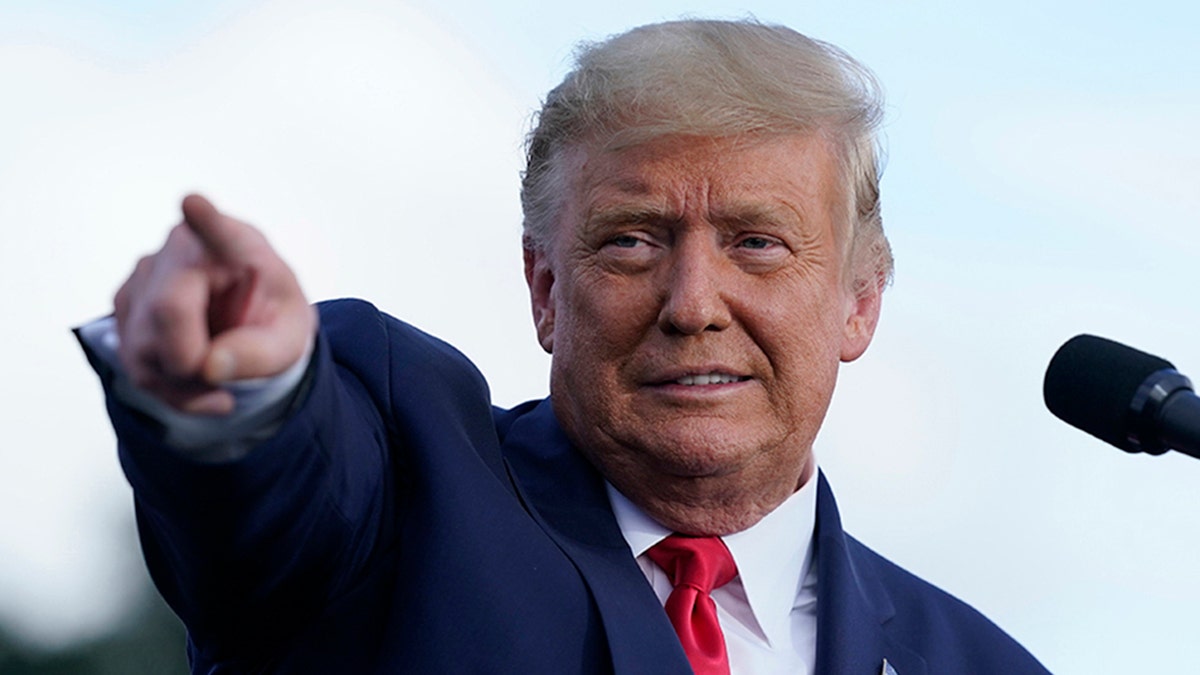Turley: Impeachment trial taking place post-service 'unresolved issue'
George Washington University law professor Jonathan Turley says there are good faith arguments to be made for post-service impeachments, but also notes there are significant countervailing costs.
George Washington University Professor Jonathan Turley will meet with Senate Republicans on Tuesday at their in-person lunch to discuss the constitutionality of the impending impeachment trial for former President Donald Trump.
Turley has argued that the impeachment trial is unconstitutional because Trump is no longer the president. He was invited by Senate GOP leadership, and Senate Minority Leader Mitch McConnell, R-Ky., plans to discuss the constitutionality question at the lunch.
That the constitutionality of a trial will be discussed among Republicans -- and that an advocate against its constitutionality will be their lunch guest -- signals that Senate Republicans may be distancing themselves from the prospect of convicting Trump and barring him from office, something many flirted with in the wake of the attack on the Capitol.
"On its face, the planned impeachment trial is at odds with the language of the Constitution, which expressly states that removal of a president is the primary purpose of such a trial," Turley said in a recent op-ed for Fox News. "At the time, Trump will be neither a president nor in office. He will be a citizen and would be best served legally to forgo the trial entirely as extraconstitutional and invalid."

Senate Minority Leader Mitch McConnell of Ky., walks to speak on the Senate floor on Capitol Hill in Washington, Monday, Jan. 25, 2021. (AP Photo/Susan Walsh) (AP)
"There are good-faith arguments for the constitutional authority to render judgment on such acts and to impose the future disqualification from federal office," Turley continued. "However, under this theory, any prior president could be barred from running again by the shifting balance of Congress. Impeachments can thus be used to even long-standing scores or curry favor with some voters."
Trump, the professor said, could then challenge any effort to bar him from office in the future, alleging that the Senate did not have the authority to conduct the trial.
Many Senate Republicans have adopted this argument. Senate Majority Leader Chuck Schumer, D-N.Y., responded to this in floor remarks last week.
"Now, I have heard some of my Republican colleagues argue that this trial would be unconstitutional because Donald Trump is no longer in office, an argument that has been roundly repudiated, debunked by constitutional scholars left, right and center, and defies basic common sense," he said. "It makes no sense whatsoever that a president — or any official — could commit a heinous crime against our country and then be permitted to resign so as to avoid accountability and a vote to disbar them from future office. It makes no sense."
Schumer added: "Regardless, the purveyors of this unusual argument are just trying to delay the inevitable. ... Make no mistake: there will be a trial and when that trial ends, Senators will have to decide if they believe Donald John Trump incited the insurrection against the United States."

House Speaker Nancy Pelosi of Calif., signs the article of impeachment against President Donald Trump in an engrossment ceremony before transmission to the Senate for trial on Capitol Hill, in Washington, Wednesday, Jan. 13, 2021. (AP Photo/Alex Brandon) ((AP Photo/Alex Brandon))
ROBERTS DOESN'T WANT TO PRESIDE OVER TRUMP'S SECOND IMPEACHMENT TRIAL: SCHUMER
Indeed, it's almost certain that no matter the objections from Senate Republicans about the trial's legitimacy, no court would step in to tell the Senate how to run the Senate. Schumer, with 50 Democrats and likely a few Republicans -- and if not, Vice President Kamala Harris to break party-line ties -- will very likely be able to force a trial.
But the constitutional argument that the trial is illegitimate can provide a convenient excuse for Senate Republicans to vote against convicting Trump while making sure to keep their distance from his post-election conduct.
Trump has a massive following in the GOP and a vote to convict him by a Republican would likely spark significant backlash -- and perhaps a primary challenge for those up for re-election in 2022.
House Democrats delivered the impeachment article against Trump to the Senate on Monday night, officially starting his trial. But because of an agreement between Schumer and McConnell, both Trump and the House managers will submit a couple of rounds of pre-trial briefs before the affair starts in earnest during the second week of February.
Trump's impeachment for allegedly inciting an insurrection came after he made false claims for months that he won the presidential election. He then gathered thousands of his supporters for a rally he said would be "wild" in Washington, D.C., on Jan. 6 as Congress and Vice President Mike Pence were certifying Biden's election win in a joint session. Trump repeated his false claims there as other allies who took the stage used pitched rhetoric.

President Donald Trump speaks during a campaign rally at The Villages Polo Club, Friday, Oct. 23, 2020, in The Villages, Fla. (AP Photo/Evan Vucci)
CLICK HERE TO GET THE FOX NEWS APP
Shortly after, a pro-Trump mob stormed and ransacked the Capitol, forcing Pence and hundreds of lawmakers into hiding.
Trump never explicitly called for violence, but he was the recipient of harsh criticism from both the right and the left for allegedly not doing enough to stop the mob.
Even those who did not support Trump's impeachment in the House, like Minority Leader Kevin McCarthy, R-Calif., said Trump bore some responsibility for what happened. McCarthy later walked back that comment in a press conference.
McConnell has left the door open to voting to convict Trump, and if he does so he would likely bring some in the Senate GOP along with him. But as more Republicans have come out in opposition to convicting Trump -- or alternatively, to the legitimacy of the trial itself -- it appears less likely that 17 Republicans will join 50 Democrats to reach the two-thirds threshold necessary to convict at an impeachment trial.
And if Trump is not convicted, the Senate cannot hold a vote on barring him from holding office in the future.















































